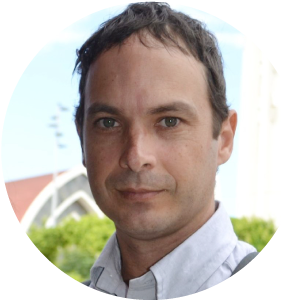
My own dissatisfaction with urban society led me to seek answers in different spiritual paths and ancestral knowledge of different cultures. When I finished my Ph.D. in 2012, I lived in an Amazonian community and met my wife, Chonon Bensho (famous shipibo-konibo artist), I realized the huge difference between doing ethnographic research as an average researcher and, without leaving the literate field, being member of a family that has practiced ancestral knowledge. And it is there, in the native community of Santa Clara of Yarinacocha, learning the language and the initiation processes of traditional physicians and sages, that my work had a considerably greater depth.
This work is a collective work together with Chonon Bensho in which we conducted ethnographic research to propose, first, academic research methodologies that distance themselves from eurocentrism, and raise them from the indigenous ontologies and epistemologies themselves. We also believe that ancestral knowledge can make a critique of hegemonic modernity as or more valuable than Western critical theory and, at the same time, can show alternatives of inhabiting the territory and the planet in greater harmony with the living beings.
Our research took 10 years. We conducted this research calmly, participating in ceremonies and collective work, generating relationships of trust so that, little by little, the sages transmit their teachings to us. Moreover, we consider this research work not only has an intellectual interest, but it is a way of life because we try, in the midst of modernity, to continue practicing some of these teachings to not forget these roots.

The work proposes methodologies where there can be a respectful conversation, on equal terms, between the academic field and ancestral knowledge."
Pedro Favaron, Ph.D.
Amazonian researcher and PUCP professor
The creativity of the project lies in proposing a writing that, while being academic and philosophical, responds to the indigenous rationalities that are usually expressed in poetic terms, therein resides the creation. There is no distance between academic research and artistic creation in our work. We tried to clear up that division.
The first contribution of the work proposes methodologies where there can be a respectful conversation, on equal terms, between the academic field and ancestral knowledge." The proposal is a contribution to the development of an intercultural and indigenous academia in which students from indigenous communities themselves do not live their inclusion in the academic field with traumas, but find paths of expression where they can articulate the new knowledge they get in the field with those they already bring from their families.
For me, it is gratifying that the University celebrates the creative production of professors because in the field of humanities, under the primacy of technocratic criteria, the literary, poetic or artistic production of professors is not always valued. There is no need for confrontation between science and poetry. For example, the poetic gaze has a fundamental contribution to the sensitivity of students in educational processes. Sensitivity is even important in the field of science because every scientific advance, besides the methodological rigor, starts from an innate capacity for wonder. Returning to that root that brings philosophy, science and poetry together, helps us to escape from an educational system governed exclusively by efficiency and productivity.
© 2020. Pontificia Universidad Católica del Perú – All rights reserved.